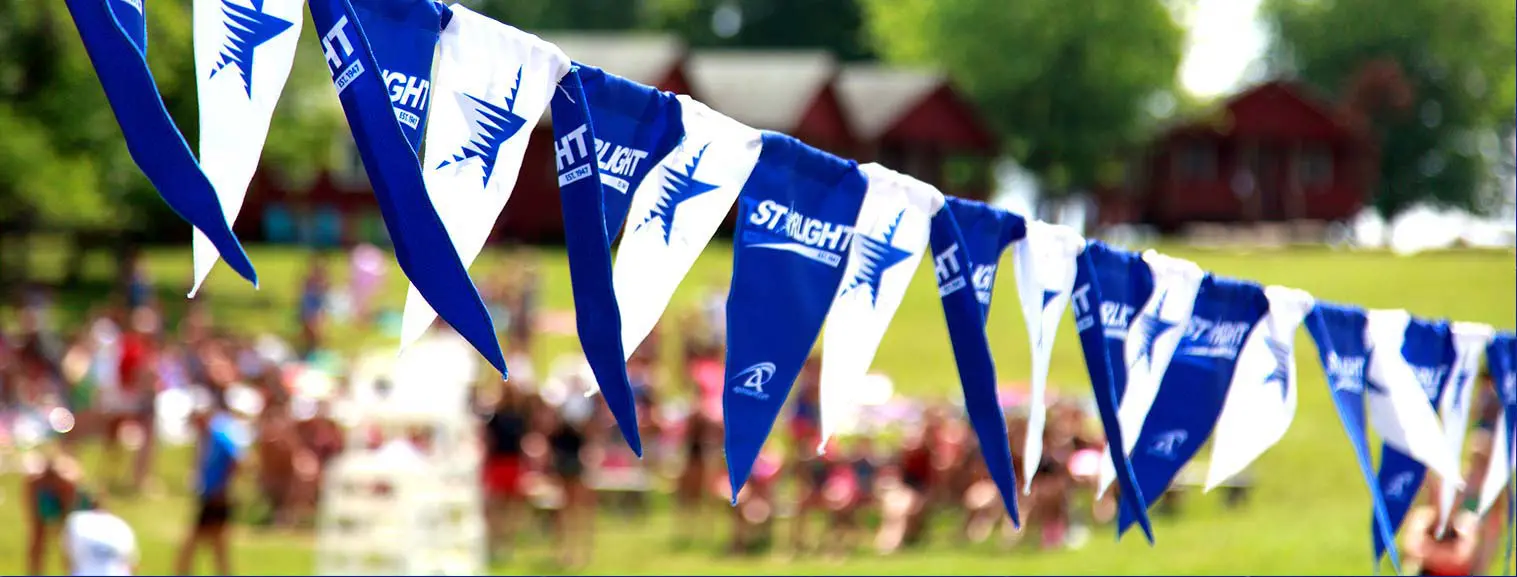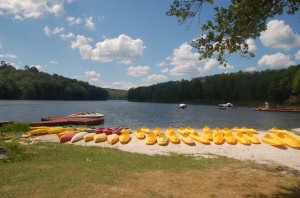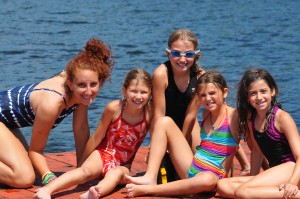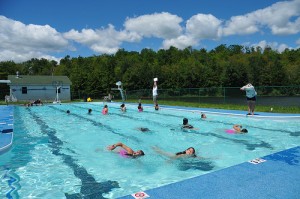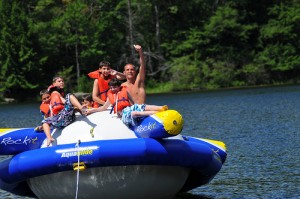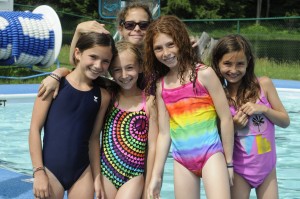 One of the most popular program areas at Camp Starlight is the waterfront. With two private lakes housing separate boy’s and girl’s swimming areas, the pool, the boating dock, waterskiing,and wakeboarding. there are always fun times going on down by the lake. However, the swimming program at Camp Starlight has much more to offer campers than just a splashing good time. The benefits of learning how to swim and proper water safety are useful for years to come.
One of the most popular program areas at Camp Starlight is the waterfront. With two private lakes housing separate boy’s and girl’s swimming areas, the pool, the boating dock, waterskiing,and wakeboarding. there are always fun times going on down by the lake. However, the swimming program at Camp Starlight has much more to offer campers than just a splashing good time. The benefits of learning how to swim and proper water safety are useful for years to come.
First of all, by learning to swim at a young age, children are given the confidence needed to 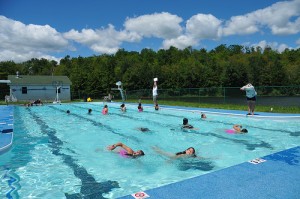 be in any environment involving water. It gives them a comfort on family vacations, school field trips, and they may even enjoy it enough to try water sports. They may find themselves at pool parties or beach trips, and with the ability to swim, they experience a sense of achievement when they are able to confidently spend time with friends and family.
be in any environment involving water. It gives them a comfort on family vacations, school field trips, and they may even enjoy it enough to try water sports. They may find themselves at pool parties or beach trips, and with the ability to swim, they experience a sense of achievement when they are able to confidently spend time with friends and family.
To establish an environment in which children will grow comfortable in their swimming ability, Camp Starlight ensures the waterfront staff is well trained and highly experienced and certified in Red Cross “Lifeguarding” and “Swimming and Water Safety” Courses as well as the Red Cross“First Aid/CPR and AED” training courses. The heads of the waterfronts also meet with their staff to discuss and share tactics in handling swimmer anxiety during lessons and the properly analyzing swimming skill levels to help provide individual campers with the instruction most beneficial to them. Most importantly to our campers, of course, is the fact that we make sure our counselors down on the waterfront are full of new and exciting games to make swim instruction the most FUN it can possibly be!
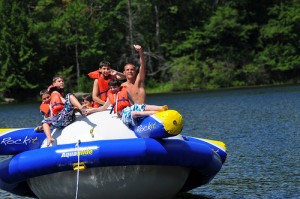 During swim instruction periods, a camper can expect to learn a wide range of aquatic skills. Lessons range in difficulty from basic skills, such as treading and floating, all the way to stroke technique development in the four key strokes. No matter the ability level with which the child enters the summer, there is a place for him or her in swim instruction. The best benefit in spending a summer at the Starlight waterfront is that campers will leave the summer with a sense of accomplishment, whether it is their first time to pass the swim test or because they made a personal best time at the Wayne County Swim Meet. And of course that they have an absolute blast doing it!
During swim instruction periods, a camper can expect to learn a wide range of aquatic skills. Lessons range in difficulty from basic skills, such as treading and floating, all the way to stroke technique development in the four key strokes. No matter the ability level with which the child enters the summer, there is a place for him or her in swim instruction. The best benefit in spending a summer at the Starlight waterfront is that campers will leave the summer with a sense of accomplishment, whether it is their first time to pass the swim test or because they made a personal best time at the Wayne County Swim Meet. And of course that they have an absolute blast doing it!



